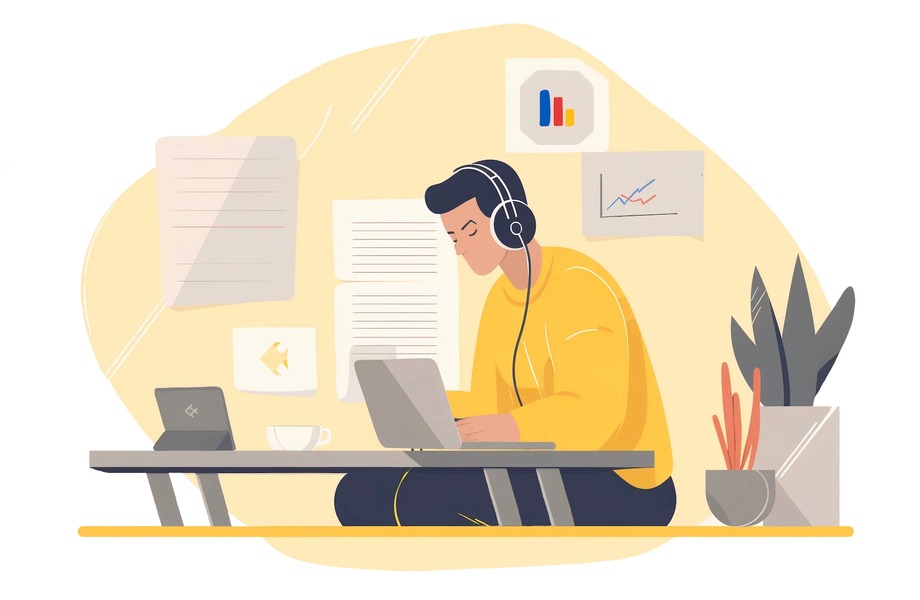🎶The Impact of Music on Study Efficiency
Have you ever considered the possible role of music as a study tool?
Throughout history, humans have harnessed the power of music for its emotive capabilities. Its profound impact on our moods, thoughts, and feelings is undeniable. But aside from its recreational and artistic values, have you ever considered the possible role of music as a study tool? As we delve into our textbooks and delve into our notes, the harmonious melodies from our earbuds may be doing more than simply providing a pleasant background noise.

Psychological Basis
Music's impact on cognitive processes goes beyond the mere aesthetics. Neurological research suggests that music, specifically instrumental or classical, can trigger the release of dopamine in our brains, which helps to increase focus and improve mood. The rhythm can help regulate our internal clock, promoting mental alertness and reducing the feeling of fatigue. Music also acts as a mnemonic device, aiding memory recall. Ever wondered why you can remember the lyrics of songs you heard years ago? The same principle applies here.
Different Types of Music and Their Specific Effects on Studying
Not all tunes, however, have the same effect. Research indicates that the type of music you listen to while studying can significantly impact your efficiency. Instrumental and classical music, often touted as the best genres for studying, aid in reducing distractions and maintaining focus. They lack lyrics, hence removing the risk of your linguistic brain getting sidetracked. On the other hand, music with a steady rhythm like lo-fi hip-hop can help induce a state of flow, making study sessions more productive. Meanwhile, nature sounds can foster a relaxed environment, reducing stress and facilitating concentration. It's crucial, however, to choose music that suits your personal preference and the nature of the task at hand.
Effect of Music on Studying
Empirical studies further substantiate the beneficial effects of studying with music. A notable study from Stanford University revealed that music with a specific rhythm could promote cognitive receptivity. In another study conducted by the University of Wales, participants performed better in memory recall tasks when studying in a consistent auditory environment. This suggests that if you start studying with music, it's advantageous to maintain that background throughout your study session.
Counterarguments and Limitations to Music's Role in Studying
However, music's role in studying isn't without its detractors and limitations. Some studies have suggested that for certain tasks requiring high levels of concentration or linguistic processing, music can be more of a hindrance than a help. Listening to music with complex lyrics while reading or writing, for instance, can lead to cognitive overload, reducing overall efficiency. It's also worth noting that individual differences play a significant role. While some individuals thrive with background music, others may find it distracting.
Should You Listen to Music While Studying?
In the symphony of learning, whether music serves as a helpful aide or a distracting element is largely dependent on the nature of the task and the listener's personal preference. If chosen appropriately, music can indeed enhance focus, elevate mood, and increase study efficiency. It's recommended that students experiment with different types of music to find what works best for their study routine. But remember, as with any tool, its effectiveness lies in its appropriate use.
In this age of infinite playlists and digital streaming, the soundtrack to your academic success could be just a click away.
Last updated